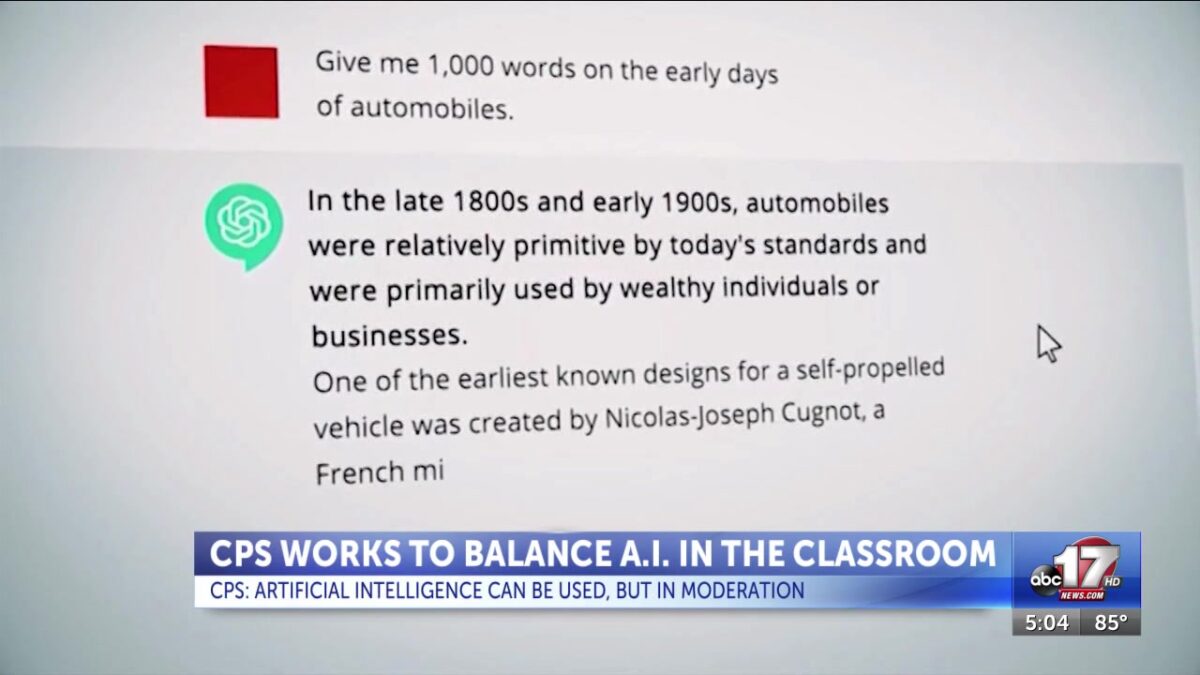Columbia Public Schools working to balance AI’s potential while keeping cheating down

Olivia Hayes
COLUMBIA, Mo. (KMIZ)
Columbia Public Schools is adapting to the evolution of artificial intelligence and its use throughout the district.
CPS spokesperson Michelle Baumstark said the district has a group working to learn more about various aspects of AI. This effort is being led by Beth Winton under the direction of Adam Taylor, the district’s chief academic officer.
“AI is used in lots of ways for instructional purposes, realizing efficiencies and innovation. There are also different types of AI,” Baumstark wrote in a statement to ABC 17 News.
Baumstark said the district is not taking a stance that AI can never be used, but AI should not replace a student learning a needed skill. She said that AI can be used by students to “personalize learning and problem solving, but should not replace the student’s own original thinking.”
When people think of AI use in education, it tends to fall under the use of generative AI, the product of programs such as ChatGPT.
Baumstark said acceptable uses of AI for students include:
Assisting students in better understanding of the curriculum or skill development.
Aiding in classroom research tasks.
Individualizing tutoring, reviewing content and as a study aid.
Baumstark said students are expected to provide transparency about external sources in their work, including generative AI. Teachers also may have syllabus instructions that include acceptable AI use specific to their classroom. Students must cite and explain the role the tool played in the creation of their work.
The Columbia Board of Education approved the 2025 school year’s artificial intelligence use plan at its Jan. 27 meeting. The plan says students and employees may be disciplined, and employees may be terminated, for AI use that violates the policy or any related procedures.
Baumstark said students must comply with all district technology use, all statements in the CPS Student Handbook and school board policies on academic integrity.
The district’s student handbook states that any form of academic dishonesty, including plagiarism, will not be tolerated.
“It shall be a violation of policy for students to take credit for work that is not their own. This would include, but not be limited to, the use of technologically generated writing, purchased papers, books, periodicals, interviews, and research abstracts without attribution,” the policy reads.
Students who cheat or plagiarize may face punishments including: no credit for the work, grade reduction, course failure or removal from extracurricular activities.
At least once per school year, the district’s policies on AI use for safety, data privacy, appropriateness and effectiveness will be reviewed and changed if needed. Employees and students may also submit requests or suggestions for new AI uses to the district.